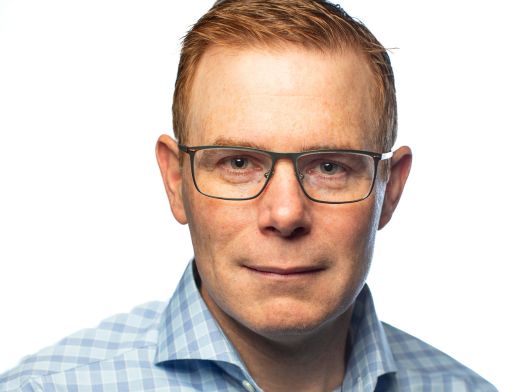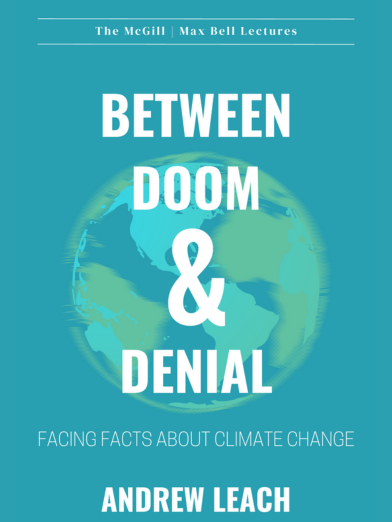Professor Andrew Leach’s new book tackles six common climate change myths
Doug Johnson - 11 October 2023

The topic of climate change draws in a lot of misconceptions, falsehoods, misinformation and disinformation. In his forthcoming book, Professor Andrew Leach of the University of Alberta’s Faculty of Law and Faculty of Arts’ Economics Department hopes to dispel some of these myths, particularly in Canada.
“I hope it will serve as a little bit of a climate change conversation survival guide for people,” Leach says. Called Between Doom & Denial, the book is set to be released on Oct. 17 by Toronto-based publisher Sutherland House.
Leach is holding a series of lectures in support of the book as part of McGill University’s Max Bell Lecture Series. These run from Oct. 19 to Nov. 2 and take place in Ottawa, Calgary and Montreal, respectively.
Between Doom & Denial aims to address six common misconceptions surrounding climate change that Canadians hear all the time, from politicians’ soundbites to well-worn pieces of misinformation and disinformation. According to Leach, the book is structured somewhat like a series of essays, each focused on a different myth or bit of misinformation surrounding climate change.

One such claim is that Canada, as a chilly northern nation, doesn’t need to be concerned about climate change. This misconception is often accompanied by claims that climate change will make the country warmer during the winter and help its agricultural sector.
However, this line of thinking ignores the dangers that Canada faces in a changing climate, such as sustained warmer temperatures leading to melting northern permafrost and to the expansion of pests and — notably this year in particular — wildfires, according to the book.
“They might give us a false sense of security,” Leach says.
The book provides context about all the claims, which is important considering they’re not entirely wrong, Leach says. He adds that they often contain little slivers of truth that make them appealing. For instance, some politicians and corporate actors claim that the world will always use fossil fuels.
While this is likely true, especially when considering oil is necessary to make things like plastics used in the medical field, massive national and international energy transitions would have implications for the oil and gas sector, he says.
“I think there are going to be some really important consequences in the long term as we take action on climate change,” he says, adding that telling people “everything’s going to be fine” could undermine long-term efforts to combat climate change.
However, Between Doom & Denial, isn’t all doom and gloom — or doom and denial. It posits that Canada does, indeed, have the tools it needs to take serious climate action. The country just needs to be honest with itself and be up for the challenge.